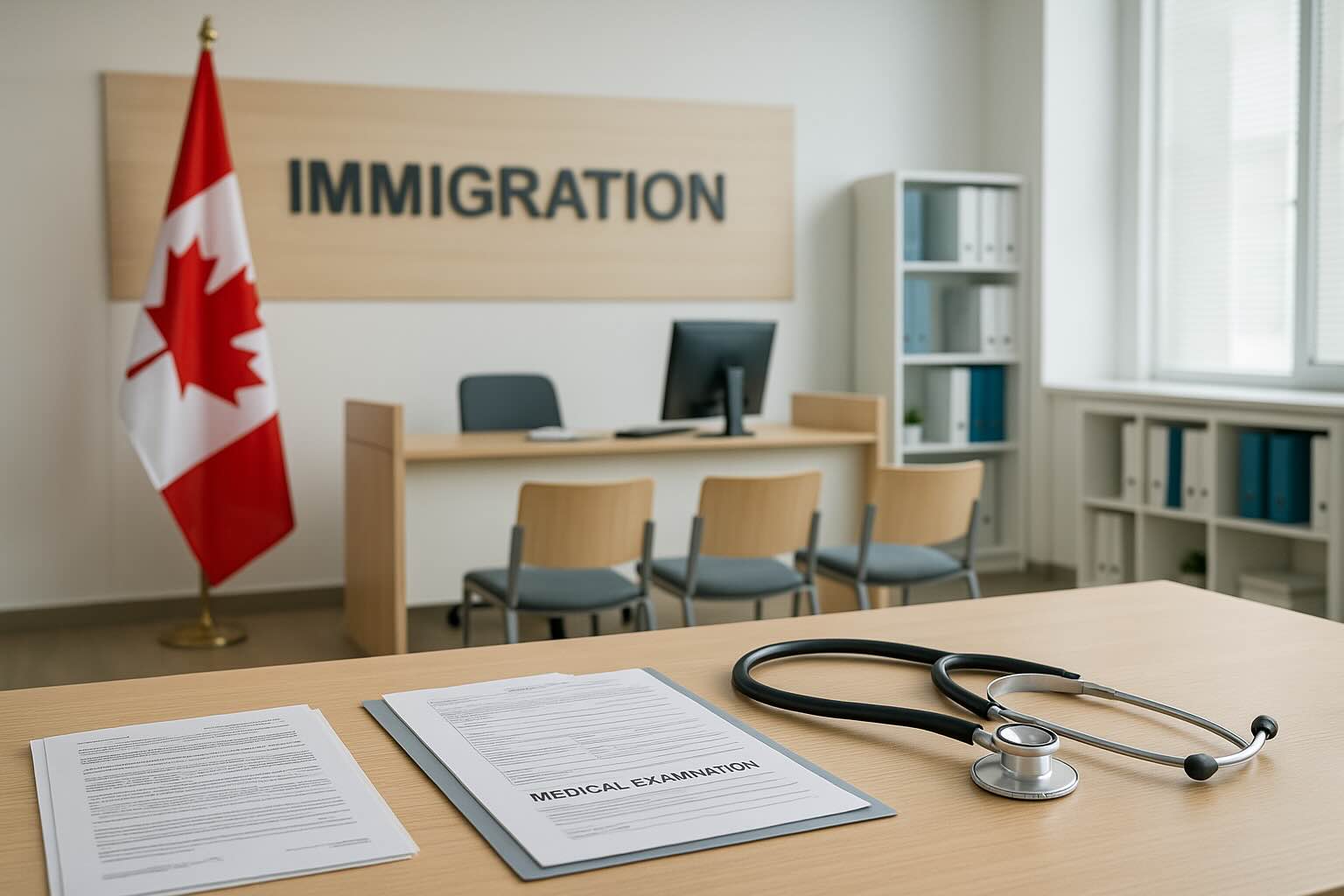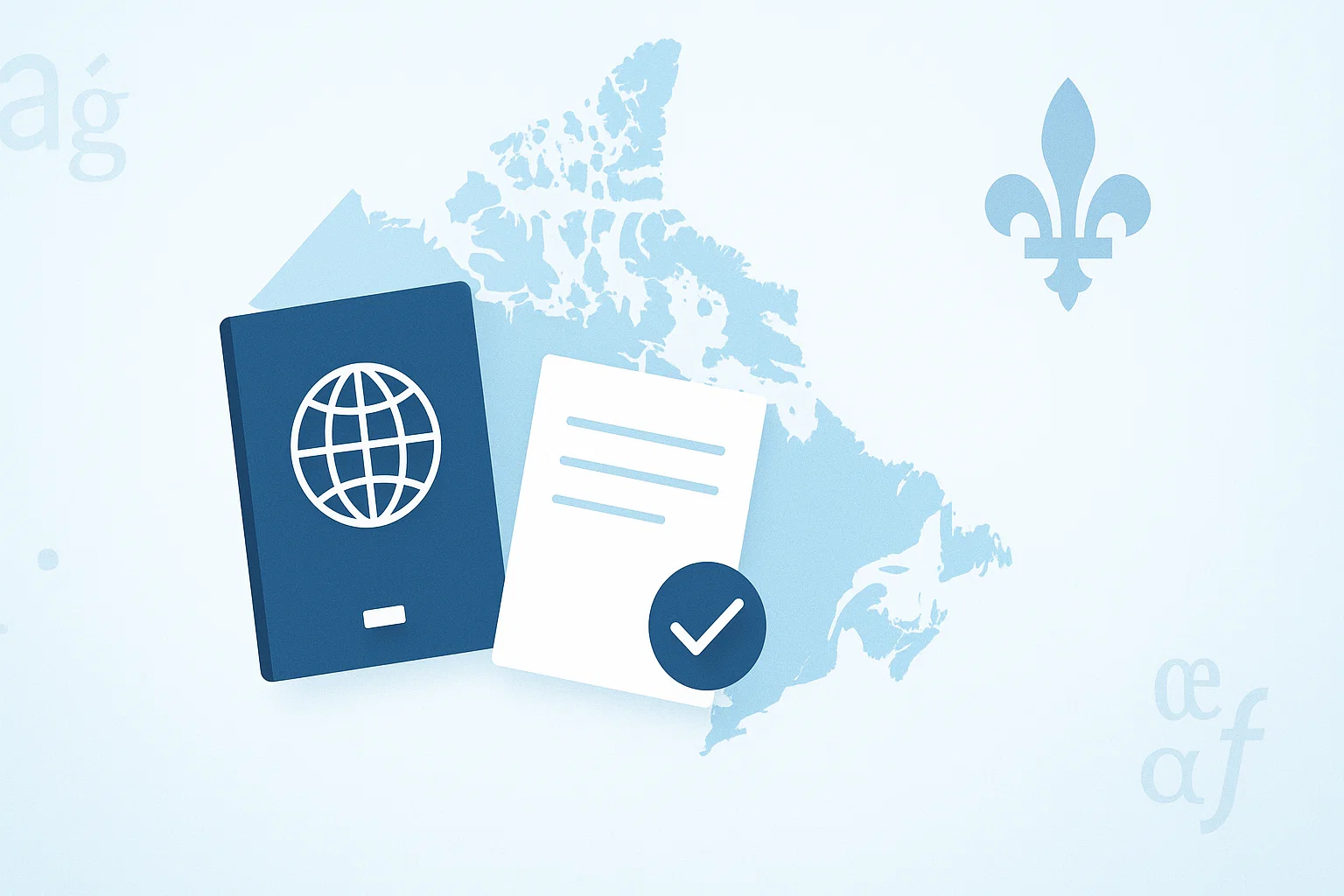
Canada’s flagship immigration system, Express Entry, is set to undergo a major procedural change. According to a new announcement on the official website of Immigration, Refugees and Citizenship Canada (IRCC), starting August 21, 2025, all candidates applying for permanent residence through Express Entry must submit proof of a completed Immigration Medical Exam (IME) with their application.
This new regulation reverses the long-standing practice where applicants would first submit their complete application after receiving an Invitation to Apply (ITA) and then wait for instructions from IRCC to undergo a medical exam. The new policy moves this critical step to the pre-application stage, requiring applicants to proactively complete their medicals, a change that will profoundly affect their planning and strategy.
IRCC has specified that the policy will not be retroactive. Applications submitted before August 21, 2025, will continue to be processed under the old rules and will not be affected by this change. Furthermore, this adjustment is exclusive to Express Entry permanent residence applications; other immigration streams, such as certain Provincial Nominee Programs (PNPs) and Family Class sponsorship, will retain their current procedures.
Why Medicals are Crucial: Understanding Medical Admissibility
The rationale behind this policy shift is rooted in Canada's strict "medical admissibility" requirements under its immigration law. The law mandates that a principal applicant and all their family members (regardless of whether they are accompanying the applicant to Canada) must be medically admissible.
An applicant is typically found medically inadmissible for two main reasons:
- Excessive Demand on Health or Social Services: If an applicant's health condition is likely to cause an excessive demand on Canada's public health or social services, their application may be refused. The current threshold for "excessive demand" is defined as costs exceeding three times the Canadian average per capita cost of health services, which amounts to $27,162 per year. However, applicants can mitigate this risk by providing evidence that chronic conditions, such as diabetes, are well-managed and stable.
- Danger to Public Health or Safety: If an applicant has certain infectious diseases that could pose a risk to public health in Canada, they will also be deemed medically inadmissible.
A Practical Guide to the Immigration Medical Exam (IME)
For prospective Express Entry applicants, understanding the IME process is now more critical than ever.
- Authorized Practitioners: IMEs must be conducted by a "Panel Physician" authorized by IRCC. Applicants must find a designated physician in their country or territory through the official IRCC website and schedule an appointment directly.
- Associated Costs: Applicants are responsible for all costs related to the IME, which typically range from $140 to $280 per person. This fee covers the services of the panel physician and radiologist, as well as any special laboratory tests, investigations, or specialist consultations that may be required.
- What the Exam Includes: A standard IME generally consists of:
- A review of past medical history (surgeries, illnesses, treatments).
- A comprehensive physical examination (eyes, heart, lungs, etc.).
- A chest x-ray (primarily to screen for tuberculosis).
- Blood and urine tests.
- A mental health assessment.
- A review of vaccination records.
- What to Bring: When attending the exam, applicants should bring valid identification (e.g., a passport), four recent photographs, a list of current medications, any relevant medical reports for past or existing conditions, and proof of prior vaccinations.
Special Circumstances: Applicants with a Previous IME
Applicants already in Canada who have completed an IME within the last five years (e.g., for a study or work permit) can provide their IME or Unique Medical Identifier (UMI) number when submitting their permanent residence application. IRCC will then assess if the previous results can be reused. If a new exam is deemed necessary, IRCC will notify the applicant accordingly.
UNA's Analysis
From IRCC's perspective, requiring upfront medicals is expected to streamline processing by identifying medically inadmissible cases at the outset. However, this shift places a new burden on applicants. They must now invest time and money in a medical exam before knowing if their application will be submitted, adding a layer of upfront financial risk and logistical pressure. The real-world impact of this new policy on processing times and applicant behavior will be closely watched by the industry and applicants alike.









